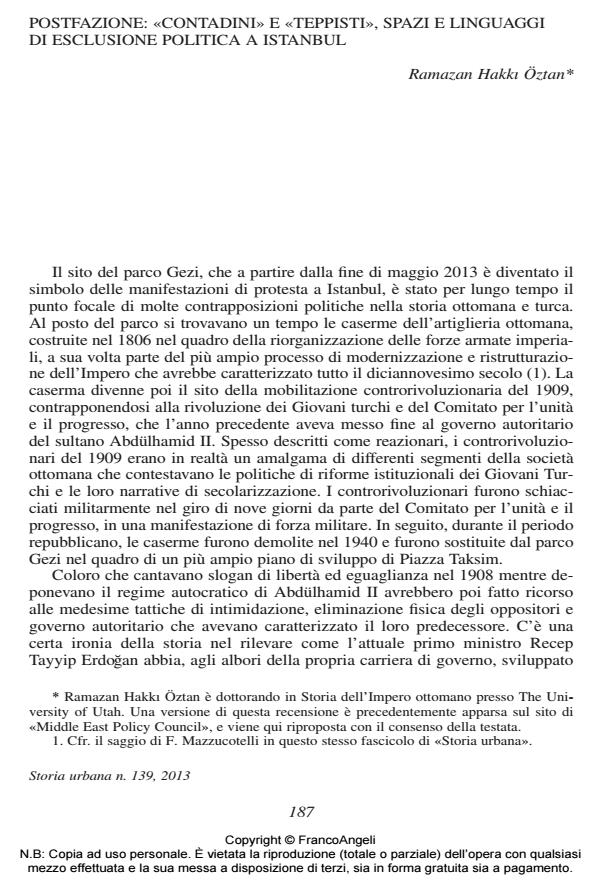Istanbul Spaces and Languages
Journal title STORIA URBANA
Author/s Ramazan Hakki Oztan
Publishing Year 2013 Issue 2013/139
Language Italian Pages 4 P. 187-190 File size 466 KB
DOI 10.3280/SU2013-139007
DOI is like a bar code for intellectual property: to have more infomation
click here
Below, you can see the article first page
If you want to buy this article in PDF format, you can do it, following the instructions to buy download credits

FrancoAngeli is member of Publishers International Linking Association, Inc (PILA), a not-for-profit association which run the CrossRef service enabling links to and from online scholarly content.
The site of Gezi Park in Istanbul, now the locus of mass demonstrations in Turkey, has long served as a spatial center of political and symbolical struggles in Ottoman and Turkish republican history. These struggles were often predicated on self-righteous boundaries, languages, and narratives of political inclusion and exclusion. The June 2013 protest in Gezi Park replicate the same pattern. A younger generation that has benefitted from the economic growth over the last ten years shows unease about the increasingly patronizing, patriarchal style of government of Prime Minister Recep Tayyip Erdo˘gan. Both the protesters and the government, however, seem unable to understand the reasons of the other, and to articulate comprehensive political platforms that can reach out and connect with those who are not part of their respective core constituencies.
Keywords: "Peasants" and "Plunderers" in Istanbul: Spaces and Languages of Political Inclusion and Exclusion
Ramazan Hakki Oztan, Postfazione: «contadini» e «teppisti», spazi e linguaggi di esclusione politica a Istanbul in "STORIA URBANA " 139/2013, pp 187-190, DOI: 10.3280/SU2013-139007